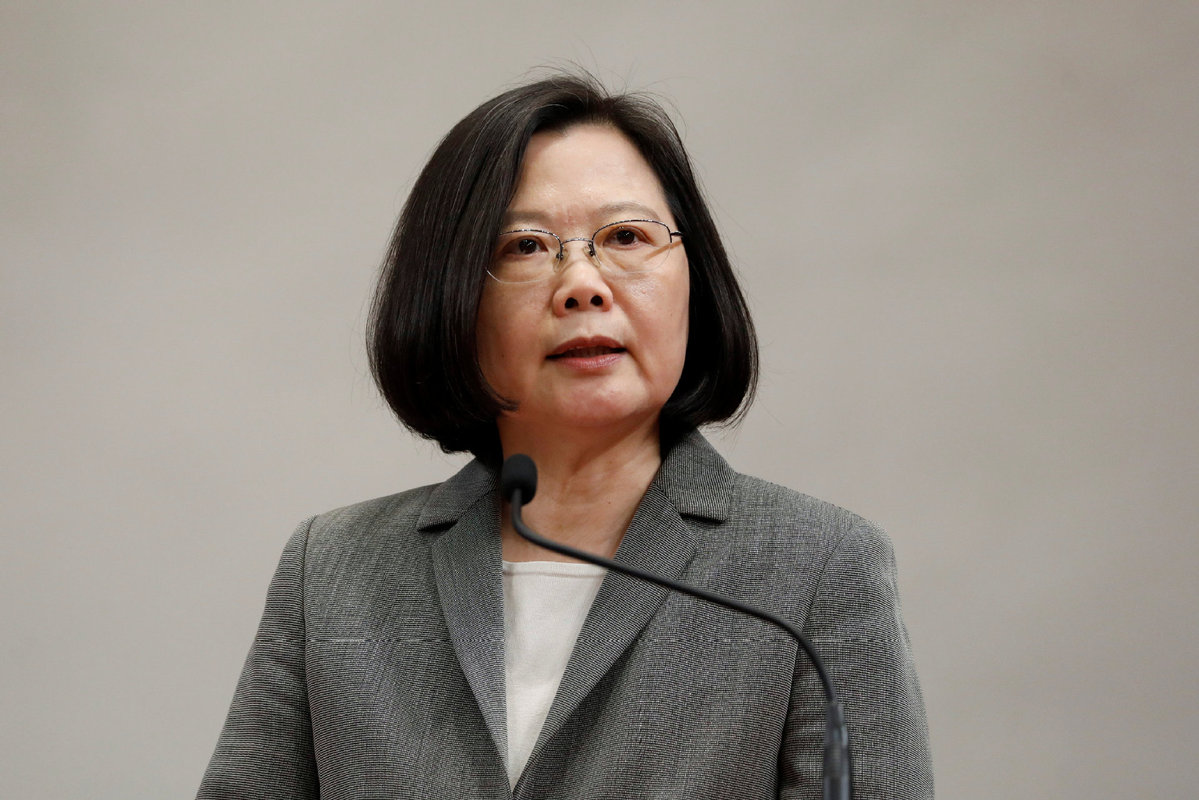Growing danger of an increasingly aggressive DPP


Taiwan leader Tsai Ing-wen has been slandering the Chinese mainland through her speeches and interviews with foreign media, further escalating tensions across the Taiwan Straits. It seems she is intent on pushing cross-Straits ties toward imminent disaster.
By taking advantage of overseas anti-Beijing forces while mongering fear about the mainland among the island's residents, the Taiwan authorities have been deteriorating the already-strained cross-Straits relationship. Such tactics may help distract Taiwan residents from the ruling Democratic Progressive Party's failures, especially its poor governance record, and thus help the party to stay in power but it could also turn the Straits into a hot war zone.
Security, stability and peace used to be the norm across the Straits. But soon after the DPP came to power in 2016, cross-Straits relations began going downhill because of its refusal to acknowledge the 1992 Consensus that there is only one China and efforts to push its secessionist political agenda.
Especially, after the outbreak of the COVID-19 pandemic in early 2020, the DPP has further hardened its stance against Beijing. And in collusion with the United States administration, the Tsai authorities have been trying to spread hatred against the mainland in order to create opportunities for "Taiwan independence".
More surprisingly, the Taiwan authorities, instead of doing some soul searching, have accused the mainland of disrupting peace and stability in the Straits. Such lies may have fooled some Taiwan residents in the past, but now the majority can see through the DPP's designs and are extremely worried about the rising cross-Straits tensions.
But regardless of the consequences, the DPP has been seeking the help of anti-Beijing forces to change the status quo across the Straits and coercing Taiwan compatriots to support its pro-independence stance.
In her recent speeches, Tsai has made no secret about her hostility toward the mainland. Pretending to uphold the banner of democracy and presenting herself as a fighter for democracy, Tsai has been seeking Western powers' help to contain the mainland's rise. And to split Taiwan from the motherland, the DPP is trying to fuel a new Cold War-even at the expense of world peace.
On the other hand, by projecting Taiwan as a beacon of democracy, some Western politicians intend to lure the islands' leaders to their side and use them as cannon fodder in the ideological war with the mainland. Yet the DPP claims these malicious intentions and moves of the West are goodwill gestures. Which explains the DPP's increasingly aggressive cross-Straits moves.
By dragging Taiwan into a geopolitical confrontation, the DPP may be able to temporarily cover up its incompetence and failures. But by doing so, it will certainly push the island toward greater uncertainty. In its thirst for power and narrow political gains, the DPP has been trying the mainland's patience and putting the island at greater risk.
Many Taiwan residents know the crisis the DPP has created and the danger it poses to them. It's time people on the island became more vigilant and stopped the DPP from making more risky moves, so as to prevent cross-Straits conflict.
The pro-independence DPP authorities have not only made the cross-Straits situation more volatile but also harmed the overall interests of the entire Chinese nation, which should prompt compatriots on both sides to work together to stop the DPP from causing further harm to national interests. And the only way the DPP can defuse the current crisis is by acknowledging the 1992 Consensus and putting cross-Straits ties back on the right track.
More important, the DPP should know that Beijing will prevent it from colluding with foreign forces to split the country, spark a war across the Straits or hinder national reunification and national rejuvenation.
The author is a professor at the Institute of Taiwan Studies, Beijing Union University.
The views don't necessarily represent those of China Daily.
If you have a specific expertise, or would like to share your thought about our stories, then send us your writings at opinion@chinadaily.com.cn, and comment@chinadaily.com.cn.


































